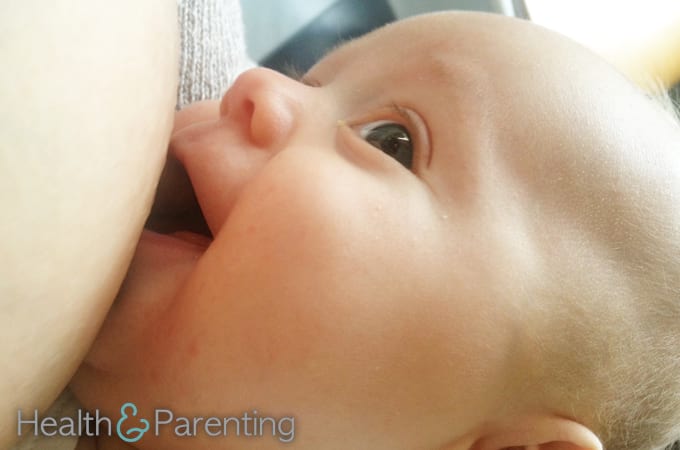Breastfeeding comes naturally to some mothers and babies, but some will have problems along the way. By preparing yourself for a potential struggle, you may avoid feelings of disappointment and failure if you have to work at breastfeeding.
One thing to remember is that most breastfeeding problems are temporary and can be overcome. Only around one percent of mothers are physically unable to breastfeed. If you find yourself struggling to feed your newborn, the most important thing you can do is ask for help. Speak to your healthcare provider straight away, they will be able to diagnose the problem and offer you the support necessary to help you continue on your breastfeeding journey.
There are a number of common breastfeeding problems, and the more you know about them, the easier you will find it to identify any problems you may face.
Sore nipples
Some women have very sensitive nipples, and can experience some discomfort as their nipples “toughen up” for breastfeeding. This pain is temporary and will soon disappear once you are in the swing of breastfeeding.
Some women find that each breastfeed is painful, this could be down to a painful letdown. Letdown is the moment your milk starts to flow. If this is to blame, the pain will disappear after about a minute of feeding.
If you are still in pain after one minute, you should remove your baby from the breast. The pain may be caused by an improper latch, so try latching the baby onto your breast again to see if that helps. Make sure baby’s mouth is wide open and baby’s body is at breast level and tummy-to-mummy – these minor adjustments can relieve a lot of pain.
If your nipples are sore and cracked, you can rub a few drops of breast milk into the nipple at the end of each feed. This will help to keep the skin moisturised and should encourage healing. You might also try using a purified lanolin made especially for breastfeeding mums.
Thrush
Pink, sore nipples that itch could be a symptom of thrush. If your nipples are infected with thrush, your baby may be suffering from oral thrush. Contact your healthcare provider if you think you have thrush. Antifungal cream will be prescribed to treat the infection. Both mom and baby should be treated.
Blocked milk ducts
If you are suffering from tender, hard, hot breasts, you may have blocked milk ducts. This condition can be very painful, but can be treated at home by getting lots of rest, feeding from the affected side to clear the blockage, and applying heat to the affected area. Hand expressing may also help to clear the blockage, and pain relief may help to alleviate any discomfort (speak to your pharmacist to find out what you can take while breastfeeding). Contact your healthcare provider if you are still experiencing pain 48 hours after onset.
Mastitis
Mastitis can be caused by a bacterial infection, or improper drainage of the breast. It is a painful condition and the affected breast(s) will feel hard and hot to the touch, will appear red and inflamed, and you may experience a burning sensation during feeds. Mastitis is often accompanied by flu-like symptoms.
Contact your healthcare provider if you think you are suffering from mastitis, since antibiotics are sometimes needed to fight the infection. Use heat compresses, drink plenty of water, rest, and continue to feed through the affected breast to speed up recovery. Your healthcare provider may recommend pain relief for the discomfort.
Tongue tie
Some babies are born with an excessively tight piece of skin connecting the floor of the mouth to the underside of the tongue. This is known as a tongue tie and can cause feeding problems. If you think your baby has a tongue tie, or if you are experiencing ongoing feeding problems, you should contact your healthcare provider for diagnosis and treatment. Tongue tie most often causes nipple soreness, low milk supply and slow weight gain.
Seeking support
Try not to feel disheartened if you run into problems at the start of your breastfeeding journey. Remember, most women seek assistance in the early weeks of feeding. Breastfeeding is natural, but that doesn’t mean it comes naturally. Speak to your healthcare provider to find breastfeeding support in your local area.
Written by Fiona, proud owner of a toddler, @fiona_peacock
This information is not intended to replace the advice of a trained medical doctor. Health & Parenting Ltd disclaims any liability for the decisions you make based on this information, which is provided to you on a general information basis only and not as a substitute for personalized medical advice. All contents copyright © Health & Parenting Ltd 2017. All rights reserved.










